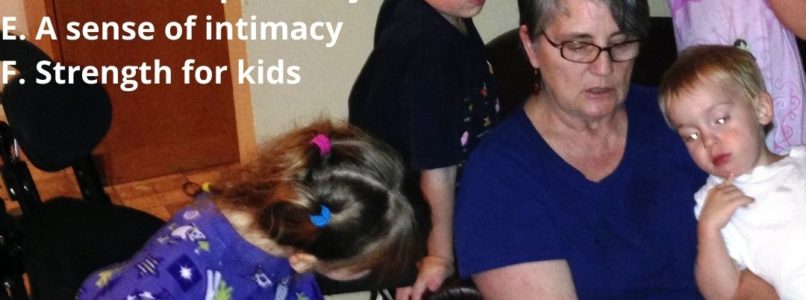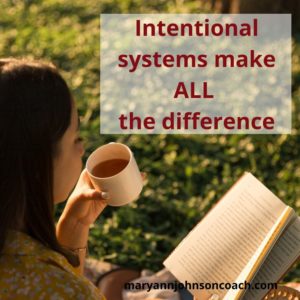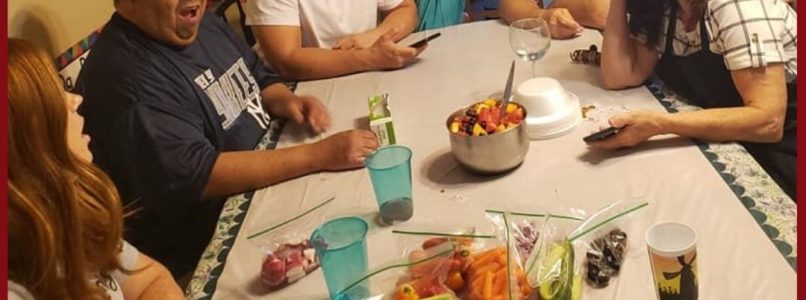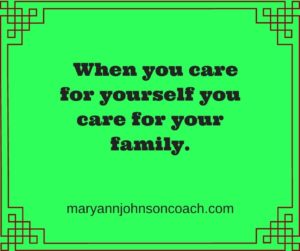 Recently, I was up until 12:30 a.m.
Recently, I was up until 12:30 a.m.
I usually go to bed between nine-thirty and ten. That is because I have experienced the value of going to bed early and rising early. I have learned that your body works better if you go to bed around the same time each night and wake around the same time each day.
I haven’t always known what I know now about good sleep. I used to be a night owl, and I was very resistant to believing that making these two changes in my life would really matter. But eventually, in desperation, I made the change. It was HARD! It was a whole year of HARD. There were times when I didn’t think I could make myself keep doing it, but I did, and it changed my life.
But things happen, and on this night, I chose to remain up. The next day, doing a simple, close-to-home errand, I had difficulty staying awake at the wheel. Although I had stayed up late, I had gotten up at my usual time, between 5:30 and 6:30. I was TIRED!
I am not a napper! Seriously, I have to be sick or very under the weather to take a nap, but I fell asleep in the chair on this day. When I woke up that morning, I felt worn out, stressed, and frankly, as the day wore on, a bit depressed. Not like me!! My tone of voice, from the get-go, was sharp. It didn’t take much to set me off. It wasn’t easy to get a handle on my responses, even as I worked on my stories and endeavored to think positively.
Now I want you to picture something in your mind.
What if I wasn’t seventy-one but was thirty-five. What if I had three or four little kids to care for. I can tell you what would happen because although I am seventy-one, I was thirty-five, and I did have lots of little kids. I have lived this!
On a day like this, I would yell more often. I might spank. I, for sure, would use time out and lectures in a loud voice. I would have difficulty being present, stopping what I was doing, and looking my children in the eye. Listening would be challenging. I would have many grouchy, angry moments. I would see my kids as naughty rather than as children who need me to pay attention.
Sleep Myths
Recently, I ran across a site which listed some myths about sleep. Because I have learned the truth the hard way, I knew that they were myths. However, maybe you are still feeling some resistance to the idea that staying up late to get some alone time is counterproductive. If so, I feel your pain. I was in that place for well over thirty years before I finally decided to put it to the test.
Here are some myths. You can get more in-depth information on them HERE.
- It matters more when you sleep than how long you sleep, as long as you sleep enough hours.
When we sleep matters! There is no comparison to the efficacy of sleeping in the dark of night compared to early morning or afternoon sleep. Here again, I have put this to the test. All I can say is that in my experience, there is a vast difference in how you feel upon waking, and a considerable difference in how you manage your day. - Your body gets used to getting less sleep.
NOPE, not true. You can train your body to go to bed late and get up early. I did that. However, it made a difference in my ability to respond well, to feel well, to care about the needs of others, noisy, busy kids, for example. - Many adults need five or fewer hours of sleep.
Generally, this is NOT true! One of my oldest friends, Janice Johnson Stauffer, has a unique situation. In her family, some of the members have the ‘short sleep gene.’ They can’t sleep longer than five hours. She tried to force herself to sleep the seven to eight hours that most of us need for years. Then through some testing, the family discovered this gene. It has made it possible for her and others in her family to do what works for their bodies. However, there are members in her family who need seven to eight hours. You can read more about their family HERE. It is a CNN documentary. Advance sleep-phase syndrome is found most often in middle-aged to older adults, with an estimated prevalence of about 1 percent. I wish I had this gene. But it affects only about 1% of us. The truth is most of us, to manage well, need seven to eight hours of nighttime sleep. I, and you, most likely, will just have to suck it up! : ) - How long you sleep is all that matters.
Sleep duration matters but there are other, just as important, aspects to sleep. Quality of sleep matters. How do we get that – no blue light a few hours before bed, no food about three hours before bed, sleeping at night rather than in the day, fewer disruptions. I have to laugh at that last one. If you are my age, you may get up often to go to the bathroom. If you are in that twenty to forty-year-old range, it will be babies and kids waking you up. But hey, we can only do what we can do.:) - The ability to fall asleep anywhere and at any time means you’re a ‘Good sleeper.”
NOPE! It is an indication of sleep problems. It could be that you are not getting good quality sleep, and you are just plain tired. It could also indicate sleep issues such as:
-Insomnia
-Sleep apnea
-Circadian rhythm disorders
-Narcolepsy and others. - Napping makes up for a lack of sleep at night.
Remember that sleeping in the dark thing? It matters! When we have not gotten enough quality sleep, we sometimes try to make up for it with a nap. Unfortunately, the few times I have tried this, it throws my sleep schedule off, and I wake up sluggish and disoriented. Naps are not bad, but they won’t serve you well if you are trying to recover from late nights.
Here is the hard truth
Most people need seven to eight hours of nighttime sleep with as few interruptions as possible. You will always struggle to parent well if you are perpetually tired. I’ve been living this new way for well over a decade now, and it’s been amazing. I enjoy going to bed earlier and getting up earlier. I can’t even believe it myself! My thinking is clearer. I have time to do things that make my day more productive—prayer, personal study, meditation. My whole day runs better. I remain calm more often. I have more patience, and I feel less stress.
It’s doable even if your kids get up at 5:30. You may not get the quiet morning routine that I have finally achieved. Your day will begin earlier. These are the hard facts. What will make this trade-off worthwhile is how you’ll feel during the day. You may have less alone time, but you’ll find it easier to be Present. You’ll find yourself feeling happier and responding like an adult more often. You’ll like yourself and your children better.
How to Begin
I recommend you begin going to bed at least 30 minutes earlier than you do now, an hour if you can commit to it. Don’t get on the computer or scroll your phone after 9 p.m. This will absolutely help you get to bed earlier!
Going to bed earlier will change your days! Nevertheless, some of you will resist. If you do resist, it will come up repeatedly until you finally get desperate for a way to feel better as a parent, to feel calmer, more in control, more patient, happier, and healthier. When that time comes, you’ll remember this counsel, and hopefully, you’ll take it. It won’t be easy, but if you remember that simple things, done consistently, over time, make big differences, you’ll be able to persevere as long as it takes to make this your new habit.


 The other day when I went out to water the garden,
The other day when I went out to water the garden, the same thing almost every day. First, I walk out to the back faucet and turn on the water. Then I go through the garden gate and turn on the second faucet which lets water into the garden.
the same thing almost every day. First, I walk out to the back faucet and turn on the water. Then I go through the garden gate and turn on the second faucet which lets water into the garden. When we moved with Jodie’s family this last time, we had to build a kitchen for my family, where a storage room had been. Everyone tried to talk me out of the light I choose to go over the kitchen sink. After all, it was a bathroom fixture. I didn’t care, I loved how it looked, and it was so illuminating. Every time I use that light, I am amazed at how much better I can see. The odd thing is that I don’t always use this extra light. Sometimes I will be washing potatoes or doing dishes and think, “I have enough light.” And I do, sort of. Then I will have a change of heart and flip the switch that is right in front of me, and voila! I can see so much better. There are other times when I know that I need more light, and I hurriedly flip the switch. I am always shocked at how much better I can see and how much more efficiently I can do whatever job I am doing because the details are more apparent.
When we moved with Jodie’s family this last time, we had to build a kitchen for my family, where a storage room had been. Everyone tried to talk me out of the light I choose to go over the kitchen sink. After all, it was a bathroom fixture. I didn’t care, I loved how it looked, and it was so illuminating. Every time I use that light, I am amazed at how much better I can see. The odd thing is that I don’t always use this extra light. Sometimes I will be washing potatoes or doing dishes and think, “I have enough light.” And I do, sort of. Then I will have a change of heart and flip the switch that is right in front of me, and voila! I can see so much better. There are other times when I know that I need more light, and I hurriedly flip the switch. I am always shocked at how much better I can see and how much more efficiently I can do whatever job I am doing because the details are more apparent.
 All my life I have wanted a bed with beautiful bed pillows. It wasn’t possible for me to have this in my family of origin for many reasons. When I was newly married, it wasn’t a real option either. However, I did come to a place where I could finally have them. But my husband doesn’t want to move a big pillow to take a nap, rest after work, or when he goes to bed. He can’t see the point. Mostly, he isn’t aware whether they are on the bed or not. He doesn’t see them. They aren’t even part of his thinking.
All my life I have wanted a bed with beautiful bed pillows. It wasn’t possible for me to have this in my family of origin for many reasons. When I was newly married, it wasn’t a real option either. However, I did come to a place where I could finally have them. But my husband doesn’t want to move a big pillow to take a nap, rest after work, or when he goes to bed. He can’t see the point. Mostly, he isn’t aware whether they are on the bed or not. He doesn’t see them. They aren’t even part of his thinking. look beautiful. Raising seven children and growing up the oldest of nine, you know that there were NEVER unused towels in the bathroom.
look beautiful. Raising seven children and growing up the oldest of nine, you know that there were NEVER unused towels in the bathroom. When I decided to stop suffering, this is what I did. I acquired a small shelf which I put in my bathroom. I got it from my mom. I trifold the towels and keep them color-coordinated, and it looks terrific. When I am in the bathroom doing whatever, I look at the towel rack, and it feels so lovely. It is perfect. I don’t mind Don’s unfolded towel or the fact that my color-coordinated towels aren’t hanging up. When I go into the bathroom, I see that I have this orderly, beautiful rack of towels. It feels satisfying to me.
When I decided to stop suffering, this is what I did. I acquired a small shelf which I put in my bathroom. I got it from my mom. I trifold the towels and keep them color-coordinated, and it looks terrific. When I am in the bathroom doing whatever, I look at the towel rack, and it feels so lovely. It is perfect. I don’t mind Don’s unfolded towel or the fact that my color-coordinated towels aren’t hanging up. When I go into the bathroom, I see that I have this orderly, beautiful rack of towels. It feels satisfying to me.
 I am a
I am a 
 When I mentor moms, I hear about all the things that aren’t working. That is what they come to me for – for perspective, to see with new eyes. I enjoy this process of sorting it out. We often begin with family systems, so things start to work better.
When I mentor moms, I hear about all the things that aren’t working. That is what they come to me for – for perspective, to see with new eyes. I enjoy this process of sorting it out. We often begin with family systems, so things start to work better.
 My sister flew to Philadelphia to see her son and his family. Michael picked her up at the airport, and they drove to New Jersey. He is in the military, and she was very anxious to see them all.
My sister flew to Philadelphia to see her son and his family. Michael picked her up at the airport, and they drove to New Jersey. He is in the military, and she was very anxious to see them all. I have a friend who was also my daughter’s friend in high school. We have known each other for a long time! We talk about stuff – family, running our homes better, being kind, writing, you know, stuff.
I have a friend who was also my daughter’s friend in high school. We have known each other for a long time! We talk about stuff – family, running our homes better, being kind, writing, you know, stuff. My alma mater has a Facebook page. Recently someone asked this question: What life hacks are helping you kill it right now. For me, at this busy stage of life, as a full-time caretaker, I find that a
My alma mater has a Facebook page. Recently someone asked this question: What life hacks are helping you kill it right now. For me, at this busy stage of life, as a full-time caretaker, I find that a 
 Recently I was at a funeral and an old friend from my high school days was there. We haven’t seen each other for many years, but she reads what I post on Facebook.
Recently I was at a funeral and an old friend from my high school days was there. We haven’t seen each other for many years, but she reads what I post on Facebook.
 Inspired to What End?
Inspired to What End?